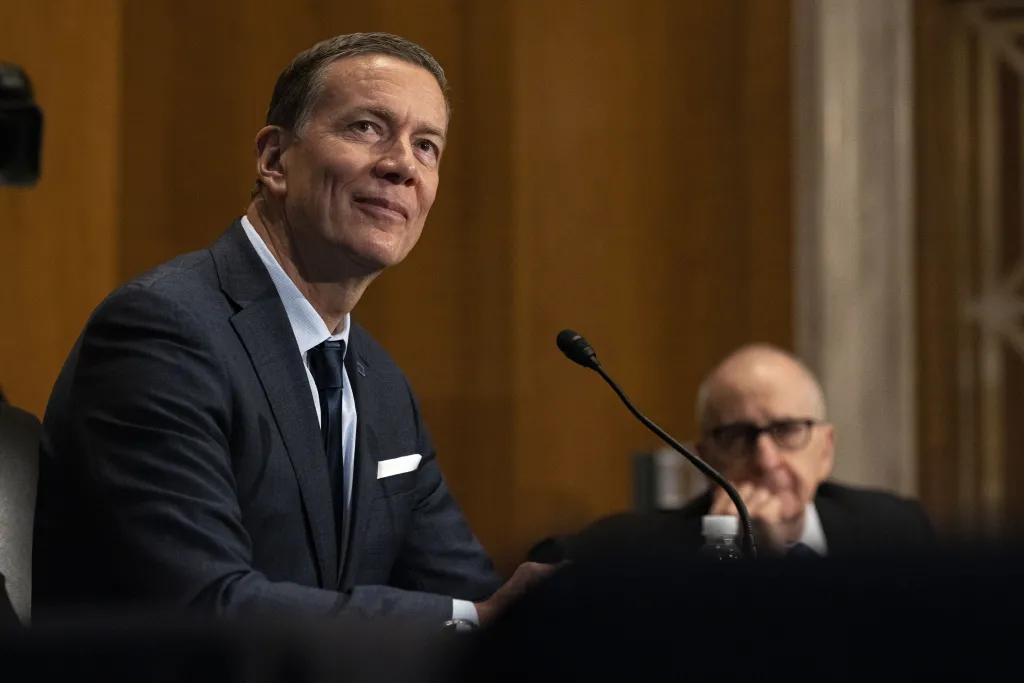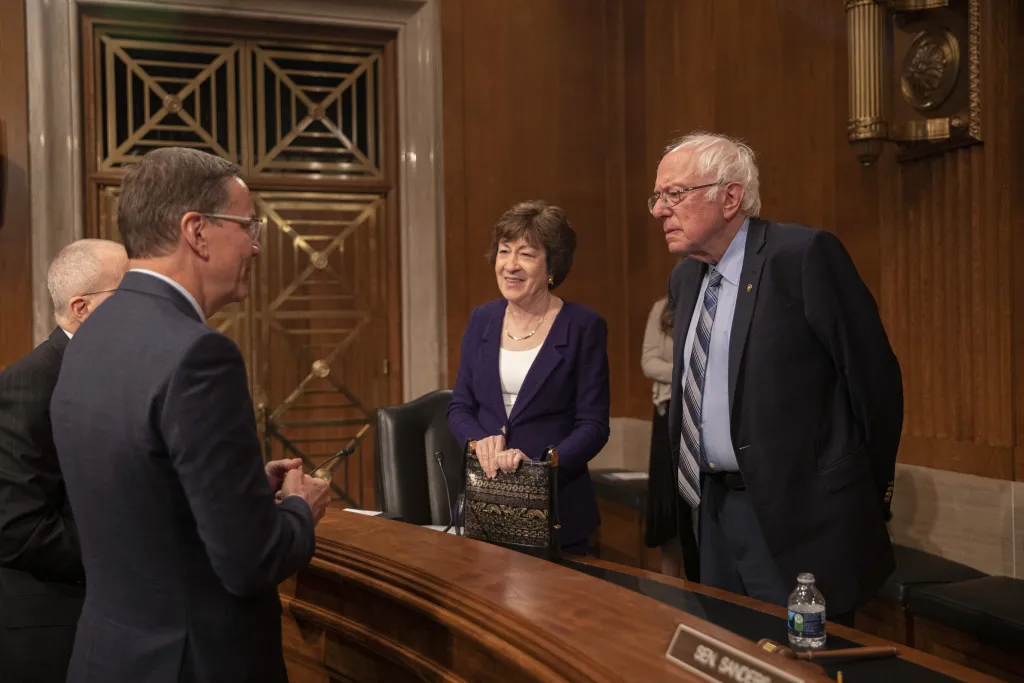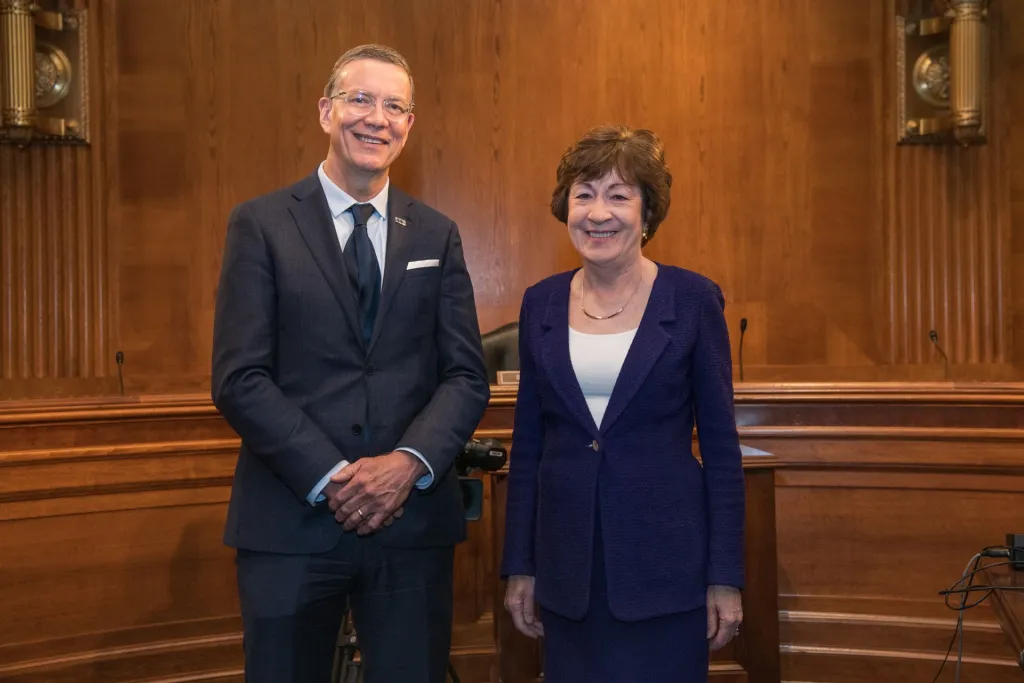President Herbert testifies in Congressional hearing about shortage in health care workforce

On Thursday, May 20, James D. Herbert, Ph.D., president of the University of New England (UNE), testified before the U.S. Senate Committee on Health, Education, Labor, and Pensions (HELP) Subcommittee on Primary Health and Retirement Security in Washington, D.C.
Herbert spoke during a Congressional hearing titled “A Dire Shortage and Getting Worse: Solving the Crisis in the Health Care Workforce” at the request of Subcommittee Chairman U.S. Sen. Bernie Sanders of Vermont and Ranking Member U.S. Sen. Susan Collins of Maine.
The hearing addressed the health care workforce shortage facing the country. Recently, the Association of American Medical Colleges predicted a shortage of up to 139,000 physicians by 2033, including upward of 55,200 primary care physicians alone.
To address this predicted shortage, Herbert proposed five specific strategies:
- Increase the number of doctors, nurses, and other health care professionals we educate by supporting partnerships between universities and health care systems to develop additional medical residencies and other clinical training opportunities;
- Intentionally recruit more students who look like the communities we need to serve, as studies have found that minority patients who are treated by clinicians who look like them are more likely to use needed health services and are less likely to delay seeking care;
- Encourage students to practice in underserved areas following graduation, such as rural, medically underserved, and tribal communities through financial incentives such as loan repayment programs for graduates who practice in specific underserved areas. Such programs have successfully helped place UNE physicians, dentists, and other health professionals in the most underserved areas of Maine;
- Leverage the power of technology to reach underserved communities through telehealth, emerging digital technologies, and increased broadband access, which have enormous potential to transform health care delivery; and
- Fundamentally change the prevailing educational model by training students to work together across disciplines in a collaborative team model — of which UNE was an early adopter and is a national leader — which has been shown to improve clinical outcomes, reduce medical errors, increase patient satisfaction, and decrease provider burnout.
Herbert added that collaborative education, when paired with digital health technologies, can be instrumental in meeting the needs of underserved communities. Further, he stated that no single strategy outlined in his testimony can solve the health care worker shortage; rather, they must work in concert.
“Successfully addressing America’s health care workforce crisis will require not merely acting on each of these five strategies in isolation, but by seamlessly integrating them,” he said. “Although strategic investment of resources will be required, much of the work we confront reflects cultural changes that will require strong leadership, a willingness to innovate, and coordinated partnership between academia, government, industry, and the nonprofit sector.”
Sen. Collins said the COVID-19 pandemic has only exacerbated preexisting challenges like health provider burnout and retention.
“Our country is tremendously grateful to the medical community for its colossal efforts over the past year. Many health care professionals are exhausted by the physical and emotional toll of caring for COVID patients,” Sen. Collins stated. “The burden on our health care workforce has been exacerbated by a workforce shortage that existed long before COVID. At a time when our nation is aging, and as more and more people are living longer with increasing health care needs, the ramifications of this shortage are troubling. Today’s hearing explored ways we can confront this challenge head on. I appreciated UNE’s President Dr. James Herbert testifying today to share his insight on how we can attract more students to the medical profession to meet a growing demand for services.”
Photos courtesy Aaron Schwartz and Jacqueline Russell.


